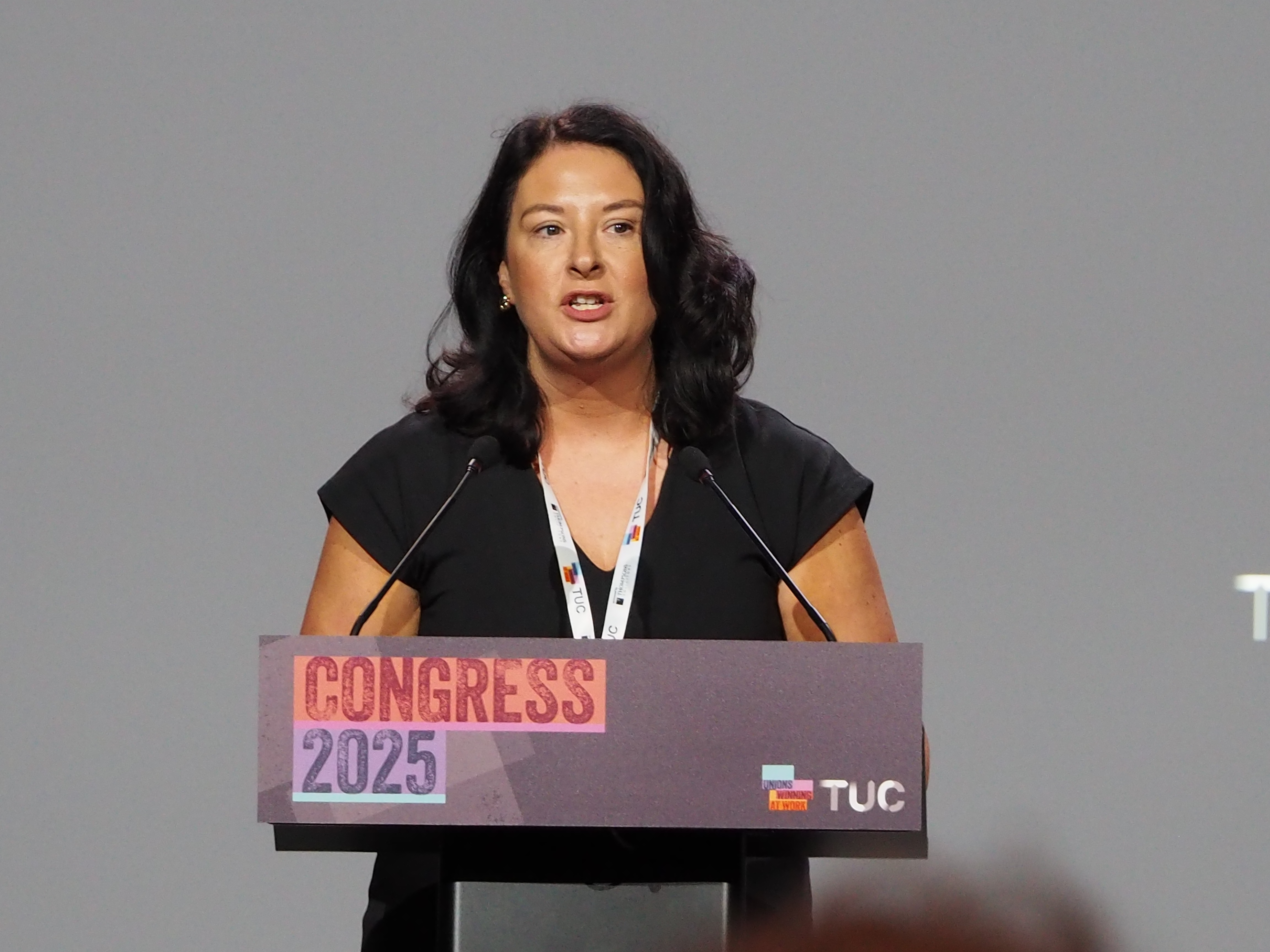
Motion 30 was proposed by the Chartered Society of Physiotherapy and seconded by the Society of Radiographers. It pinpointed the NHS retention crisis and recruitment freezes as two of the main issues facing physiotherapy today - similar to radiography.
Congress asked the TUC to put pressure on the government to change its approach to public sector pay.
Motion 30: TUC 2025
Leandre Archer, head of industrial relations at the SoR, spoke at the Congress to formally second the motion:
“President, Congress, Leandre Archer, Society of Radiographers. Congress, I rise to second Motion 30 because behind the statistics and the policy failures are real people - our members, our patients - who are being let down by a system that is running on empty.
“Nine out of ten people now see a radiographer in their treatment pathway. Demand for diagnostic scans and radiotherapy has risen steadily this century, but the workforce just hasn’t kept pace. Why? Because there’s no coherent plan to grow and support the professionals who deliver these vital services.
“We have a waiting list crisis. Not just because of rising demand, but because we don’t have enough radiographers. People are waiting too long for cancer treatment because we have failed to grow and retain the radiography workforce at the rate needed.
“And while demand has surged, pay and reward have continually fallen. Our members have seen their basic pay fall by about 22 - in some cases, 32 - per cent relative to average pay across the economy. The 2025 pay award didn’t close the gap - it widened it.
“Let me give you a stark comparison. In the south of Ireland, radiographer pay was roughly equal to the UK in 2010. Now, a new graduate in Ireland earns what an experienced MRI or CT specialist earns in the UK. And an MRI or CT specialist in Ireland can earn as much - or more than - a manager in the UK. That’s not just unfair - it’s unsustainable.
“The constant atmosphere of prices and short-termism that flows from never having enough staff undermines patient care and fuels the workforce crisis. We’ve seen perverse recruitment freezes where new graduates can’t find jobs despite vacancy rates being 15 per cent in some modalities. Burnout is rampant, especially among early-careers staff. They’re working excessive hours just to cover staffing gaps and to pay rent and bills. Many are turning to agencies for flexibility and escape, where they’re offered nearly double the NHS hourly rate.
“Pay restoration is essential to making radiography and indeed all NHS careers competitive again. The planned renewal of the workforce strategy is a critical moment. Our members are watching closely. They want to know, ‘is this government serious about change?’ We need a coherent strategic approach to workforce planning, recruitment, retention, pay and reward. Pay restoration built into every pay award, a double lock on public sector pay, and funding for staffing levels and training numbers that creates space for flexible working, a right not to work excessive hours, and to end reliance on overtime.
“Congress, I urge you to support this motion and send a clear message: the time for short-term fixes is over. We need a new approach - one that values our public services and our workers and rebuilds our NHS from the workforce up. Thank you.”
(Image: Leandre Archer speaking at the Trade Unions Congress, via the SoR)
